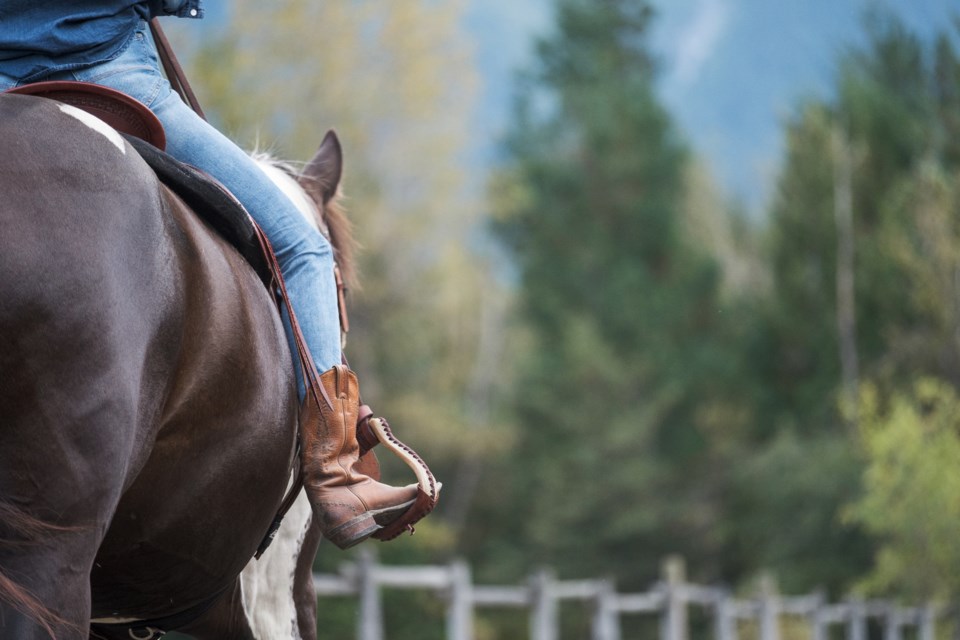The Pemberton Valley Horse Association (PVHA) will host a two-day equine first-aid course at Donnybrook Farm on Sept. 13 and 14, offering owners and riders training that could help save animals’ lives in emergencies.
The sessions will be led by Courtney Gledstone, a senior instructor and lead trainer with Equi-Health Canada. She has taught equine first aid for eight years, and helps train other instructors.
“I think the biggest thing that drew me to teaching was, shortly after I became an instructor, I started working at a large animal equine veterinary practice, and just going on so many calls, I realized not enough people knew how to actually do what I was teaching,” she said.
The first day of training covers what veterinarians need to know when called—conditioning a horse to accept treatment, taking vital signs and treating injuries such as lacerations, punctures, colic, choke, collapse, casting, shock and hoof problems. Participants will also learn to recognize pain and address spinal health, injury prevention, and more.
“If people are looking for a really good foundation for basic or introductory knowledge and skills, I would encourage them to do just the first day,” Gledstone said, adding it is suitable for “anyone who has a horse” or spends time around them.
Day two focuses on advanced scenarios, including caring for trapped horses, poisonings, burns, bites, hypo- and hyperthermia, tie-ups, fractures and sucking chest wounds.
“Day two is more for people who have horses and also are looking for more advanced scenarios where, without immediate intervention, the horse wouldn’t survive,” Gledstone explained.
Hands-on components will use horses provided by the host location. Participants will also receive a take-home manual and vital-signs reference card.
“In the event something does happen, they can just kind of look at it and go, ‘OK, I have a broken leg,’ and it tells you exactly what you’re looking for and what you should do for it,” Gledstone said. She encourages former students to reach out if they face a situation and are unsure how to proceed.
Gledstone’s course aims to give locals the tools to “treat injuries and address incidents before the vet comes.”
The course comes amid ongoing shortages of large-animal veterinary services in rural B.C. A 2023 report commissioned for the BC Cattleman’s Association found that, while there are an estimated 250 to 300 large- or mixed-animal veterinarians in the province, the Interior and Northern regions may have up to 8,900 animals per vet. That’s more than double the provincial average.
Those gaps can leave communities like Pemberton waiting hours or longer for veterinary care.
“Horses do require care, and there’s so much that we can do for them by just taking a day or two to learn a few things and get ourselves better prepared,” Gledstone said.
The PVHA course costs $169 for one day or $338 for both. Participants can register and send payment via e-transfer to [email protected] with their name, email and the date(s) they wish to attend.
Equi-Health Canada, founded in Alberta in 2007, offers similar training across the country. Gledstone said she has taught in Pemberton at least three or four times and noted the area’s strong equestrian community.
“I think that the community of Pemberton works really well with the other groups that want to use the trails and has a really strong horse community, which is huge because they’re fairly remote,” she said.




